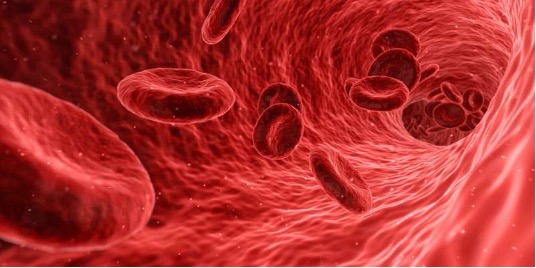Researcher reach milestone in the treatment of anemia in chronic lymphocytic leukemia
July 6, 2023
Source: drugdu
 335
335

In people with myelodysplastic neoplasms (MDS), a usually benign form of chronic lymphocytic leukemia, the body produces too few functional blood cells. Affected individuals suffer from anemia—a lack of red blood cells or hemoglobin—which can be a precursor to acute leukemia.
Compared to the standard treatment, luspatercept can increase hemoglobin levels in MDS patients and help them to avoid blood transfusions. These are the findings of an international clinical trial led by Professor Uwe Platzbecker from Leipzig University and the University of Leipzig Medical Center in collaboration with a large international research team.
Every year, around 4,000 people in Germany alone are diagnosed with myelodysplastic neoplasms (MDS). In these patients, the healthy maturation of blood cells is disrupted, which can lead to anemia, infections and an increased risk of bleeding. High-risk MDS is characterized by rapid progression, severe symptoms and often a transition to acute leukemia that results in a short life expectancy.
Patients who fall into the low-risk category of MDS are not initially in an acutely life-threatening situation, but often suffer from mild to moderate anemia as a result of a lack of mature and functional red blood cells.
This type of anemia manifests itself primarily through reduced performance as well as extreme fatigue and tiredness, which severely limit the quality of life of those affected. And anemia can often only be adequately treated with regular blood transfusions. A certain proportion of patients benefit from treatment with epoetin alfa—currently the only standard of care—before or in addition to blood transfusions. However, as a result of certain biological parameters, epoetin alfa is not suitable for all patients and the effect is usually not permanent.
In a recent international study, luspatercept showed significantly better results compared to epoetin alfa in the initial treatment of low-risk MDS patients. Professor Uwe Platzbecker, director of the Department for Hematology, Cell Therapy, Hemostaseology and Infectious Diseases at Leipzig University Hospital played a leading role in developing the clinical research project and recently presented this milestone at the European Hematology Congress in Frankfurt.
"The results of this initial analysis of the COMMANDS trial will influence the treatment algorithm for low-risk MDS patients requiring transfusions and likely establish luspatercept as a first-line treatment option in this group," says Professor Platzbecker, first author of the current publication. The results were published in The Lancet.
The results are based on an interim analysis. Data were analyzed from 147 study participants who received luspatercept and 154 study participants who were assigned to the epoetin alfa group. The objective of the study was to avoid blood transfusions over a period of 12 weeks and to increase hemoglobin levels by at least 1.5 points. A significantly higher number of patients treated with luspatercept (59% in total) met the primary endpoint. In comparison, the objective was achieved by only 31% of those in the epoetin alfa group.
The COMMANDS trial is designed as an open-label, randomized phase 3 trial and is being conducted at a total of 142 centers in 26 countries. Eligible patients required red blood cell transfusions at the time of study entry and had not previously received the standard treatment.
Professor Platzbecker has been involved in clinical research on myelodysplastic neoplasms for more than 20 years. The COMMANDS trial follows a comprehensive study program on the active ingredient luspatercept, which Professor Platzbecker has been involved in both medically and scientifically, in partnership with the manufacturer.
Journal information: The Lancet
By editorRead more on
- The first subject has been dosed in the Phase I clinical trial of Yuandong Bio’s EP-0210 monoclonal antibody injection. February 10, 2026
- Clinical trial of recombinant herpes zoster ZFA01 adjuvant vaccine (CHO cells) approved February 10, 2026
- Heyu Pharmaceuticals’ FGFR4 inhibitor ipagoglottinib has received Fast Track designation from the FDA for the treatment of advanced HCC patients with FGF19 overexpression who have been treated with ICIs and mTKIs. February 10, 2026
- Sanofi’s “Rilzabrutinib” has been recognized as a Breakthrough Therapy in the United States and an Orphan Drug in Japan, and has applied for marketing approval in China. February 10, 2026
- Domestically developed blockbuster ADC approved for new indication February 10, 2026
your submission has already been received.
OK
Subscribe
Please enter a valid Email address!
Submit
The most relevant industry news & insight will be sent to you every two weeks.



